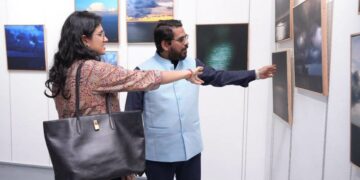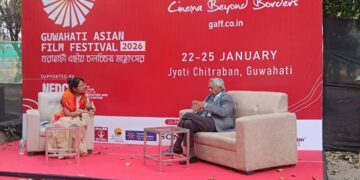Here’s the hard truth. The general election being planned by the Yunus regime in association with the nation’s political parties will neither appeal to the general public nor will it be an election in the accepted sense of the meaning.
The reason is not difficult to find. Muhammad Yunus and Tareq Rahman may have come away from their meeting in London feeling comfortable about Bangladesh’s political future.
But a meeting between two men in London certainly does not decide Bangladesh’s future in distant Dhaka.
The Bangladesh Nationalist Party (BNP) might be having the happy feeling that its path to power is now clear.
For their part, Yunus’ followers could well feel that in light of the London meeting their hold on politics is now stronger than it has been since the overthrow of the Awami League government in August last year.
At another end, the Jamaat-e-Islami and other Islamic parties could well be feeling complacent about their own prospects, given the thought that they have been gaining ground in the political landscape in the past ten months.
In effect, all this talk of an election is, at this point, an illusion. It is so because as many as 35 to 40 percent of voters in Bangladesh have traditionally been loyal to the Awami League and will not vote for any other party.
Now — and here comes the big question — what manner of an election does the unelected Yunus regime plan and why should the BNP and other parties feel enthusiastic about it?
Yes, in simple parlance, the Awami League may be under a ban or suspension.
But the Awami League remains the nation’s largest political party. It has not gone extinct.
In these ten months, it has borne the brunt of all manner of assaults on it. Its leading figures are in prison, with no sign that the Yunus regime is ready to initiate a legal process that could allow the party to speak for itself in court.
Again, many party functionaries, including Sheikh Hasina, are in exile abroad but have not washed their hands of politics. Add to such facts the clear conclusions that will be drawn by international observers if an election is gone through willy-nilly by Yunus and his friends.
Those observers may not be enamoured of the Awami League, but they do know that at this critical juncture in Bangladesh’s history it is imperative that a credible, fair and inclusive election take place in the country.
We will come to the question of a free and fair election later. For now, Yunus, the BNP and all the other parties that have been having a field day in the aftermath of the departure of Sheikh Hasina’s government ought to inform themselves that keeping the Awami League out of the election will be a new invitation to disaster, for themselves and for the country.
Look at the hypothetical: on the morning after the election, once all the votes have been tallied and the picture has become clearer, the nation will not celebrate because the Awami League will not have been there.
From day one, therefore, the Awami League will be out on the streets, registering its protests over an election dependent on the farcical. And the party will not be alone.
Yunus and his friends and the parties taking part in the election will not have time to relish their triumph because it will be a hollow exercise for all of them.
The shadow of the Awami League will loom large over politics; and the government which is formed, if it is formed at all, after the election will limp from its very first moment in office.
Put it another way: an election minus the Awami League will be a non-starter, giving those participating in it no reason to feel happy.
It will be a re-enactment of 1971: despite the ferocity with which the Yahya Khan junta went around killing Bengalis in Bangladesh, it was the Awami League that exercised the public imagination all the way to liberation.
Now to the issue of the election being free and fair, here’s the scenario: Yunus’ followers are banking on the idea, because they have formed a political outfit they call the National Citizens Party that they will have a shot at being part of the government emerging after the election.
It will be the BNP that will raise the free and fair question because Yunus and the NCP are closely allied, because the interim regime will convey the disturbing thought that it will be biased toward the NCP at the election.
And, yes, without the Awami League at the polling stations, this issue of a free and fair election will have little meaning anyway.
But assume for a moment that the Awami League will demonstrate its old street power in a way that will force the current political players to give it space at the election.
What happens then? The first question that will be raised will pertain to the legitimacy of the Yunus regime insofar as the election is concerned.
Having set a terrible record as the driving force behind the systematic assaults on Bangladesh’s history since August 2024, the interim regime will be in a vulnerable position.
On the one hand is its loyalty to the mobs that brought it to power, and on the other is the people’s hardcore belief that this regime has been on a deliberate campaign to smear Bangladesh and the entirety of its history.
The point? A free and fair election under the Yunus outfit will be a pipe dream.
The Election Commission, now in place, will predictably come under question because it lacks legitimacy in the way the Yunus regime and all other institutions reconstituted or set up by it have lacked legitimacy since August 2024.
Held without the presence of the Awami League in the field, the election will not bring stability back to the country.
The BNP knows it, the Islamic parties, despite their visceral hatred of the Awami League, know it. As for Yunus’ followers, they are always looking behind their shoulders for fear that the Awami League looms behind them.
ALSO READ: Why the Awami League matters in Bangladesh
The question is not one of whether the election is held in February or April, or June next year.
It is one of how adroitly those running the show today, as also those who cheered the fall of the Awami League ten months ago, come round to an acceptance of pragmatism — that an election without the party that steered Bangladesh to freedom, that has upheld secular nationalist values, that brought the assassins of Bangabandhu and the 1971 collaborators of the Pakistan army to justice, that put in place assertive foreign and economic policies, will worsen the crises the country has been mired in, especially in the last ten months.















